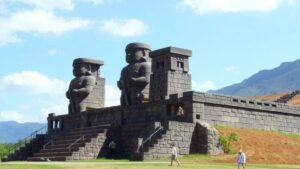How explorers deal with political and cultural tensions during international expeditions.
How Explorers Deal with Political and Cultural Tensions During International Expeditions
International expeditions have always been fraught with challenges, but none are as complex as managing political and cultural tensions. Explorers, whether in the age of discovery or the modern era, face the delicate task of navigating diverse environments while respecting local customs and government protocols. This article explores how explorers effectively address these tensions to ensure successful missions.
The Historical Context of Exploration
Exploration has existed for centuries, evolving from the early voyages of figures like Christopher Columbus in 1492 to contemporary expeditions funded by scientific and commercial interests. For example, during the 19th century, explorers like David Livingstone faced significant challenges in dealing with African tribal leaders while also navigating colonial interests. The competing political agendas of European powers often created complex layers of tension that explorers had to carefully manage.
Understanding Local Politics
Before embarking on an expedition, thorough research into the political landscape of the destination is essential. Explorers must understand the current government, its stability, and any existing conflicts. For example, in 2011, when the Discovery Channel filmed an expedition in the politically volatile regions of East Africa, the team engaged local political figures to comprehend the communal dynamics and work within the existing political framework.
Building Relationships with Local Communities
Establishing trust with local communities is crucial. Explorers often collaborate with local guides and experts who understand the cultural nuances and social fabric of the area. This relationship-building can take several forms:
- Involvement in community events to show respect for local customs.
- Listening to community leaders to gain insights into their needs and concerns.
For example, during the 2007 Mount Everest expedition, climbers made a concerted effort to engage with the Sherpa communities, ensuring that their customs and heritage were respected while gathering local knowledge that contributed to the expeditions safety and success.
Respecting Cultural Norms and Practices
Cultural sensitivity is paramount. Explorers must recognize and respect local traditions, languages, and religious practices. Misunderstandings can lead to tension or conflict, potentially jeopardizing the expedition. A notable example is the annual visits to remote tribes in Papua New Guinea, where explorers often partake in cultural ceremonies to honor local norms before conducting research.
Legal Compliance and Permits
Navigating the legal landscape is another critical aspect of managing political tensions. Most countries require specific permits for exploration, scientific research, or travel through protected areas. Failing to comply with these laws can result in fines or expulsion. For example, in 2015, an expedition team in the Amazon rainforest was fined due to a lack of proper documentation, demonstrating the importance of adhering to legal protocols.
Adaptive Strategies for Conflict Resolution
Conflict resolution skills are invaluable for explorers. In high-stakes situations, being able to adapt their approach is often the key to overcoming challenges. Explorers utilize various strategies to mitigate tensions, including:
- Active listening and open dialogue to find common ground.
- Engaging neutral mediators when disputes arise.
A relevant example occurred during the 2018 Antarctic expedition when a misunderstanding about resource use among international teams arose. Leaders initiated conflict resolution discussions resulting in shared agreements that honored both logistical needs and environmental protection protocols.
Real-World Applications and Lessons Learned
The lessons learned from historical and contemporary explorers provide valuable insights for future expeditions. Understanding political climates, building trust with local communities, respecting cultural norms, ensuring legal compliance, and possessing adaptable conflict resolution strategies are all integral to successful exploration. These principles not only benefit explorers but also contribute to positive relations between nations.
Actionable Takeaways
For budding explorers and researchers, the following strategies can help in managing political and cultural tensions during expeditions:
- Conduct thorough background research on the political and cultural environment before departure.
- Engage with local experts and leaders to foster relationships and mutual respect.
- Ensure compliance with local laws and obtain necessary permits.
- Maintain flexibility in conflict resolution and be prepared to engage in dialogue.
By implementing these strategies, explorers can navigate the complexities of international expeditions while fostering good relations with local communities and governments, thereby enhancing the success of their missions.



